Cell Reproduction -> single-celled
Single-celled Organisms
Single-celled organisms, also known as unicellular organisms, are living things that consist of only one cell. These organisms carry out all the necessary functions for life within a single cell, including obtaining nutrients, excreting wastes, and reproducing.
Types of Single-celled Organisms
There are several types of single-celled organisms, including:
- Bacteria: These are prokaryotic organisms that lack a nucleus and other membrane-bound organelles. They are found in a wide range of environments and play important roles in various ecological processes.
- Protists: This diverse group includes organisms such as amoebas, paramecia, and algae. Protists can be found in aquatic environments and soil, and they can be both autotrophic and heterotrophic.
- Some Fungi: Certain fungi, such as yeast, are single-celled. Yeast is used in various industrial processes, including baking and brewing.
Characteristics of Single-celled Organisms
Single-celled organisms share several common characteristics, including:
- Unicellular Structure: As the name suggests, single-celled organisms are made up of only one cell, which contains all the necessary structures and organelles for life.
- Microscopic Size: Most single-celled organisms are too small to be seen with the naked eye and require a microscope for observation.
- Adaptability: Single-celled organisms can adapt to a wide range of environmental conditions, allowing them to thrive in diverse habitats.
- Reproduction: Single-celled organisms reproduce asexually through methods such as binary fission, budding, or spore formation.
Study Guide
To better understand single-celled organisms, consider the following study guide:
- Define the term "single-celled organism" and provide examples of such organisms.
- Compare and contrast the structures of bacteria and protists.
- Explain the advantages of being a single-celled organism in terms of adaptability.
- Describe the different methods of asexual reproduction in single-celled organisms.
- Research the industrial uses of single-celled fungi, such as yeast.
By studying these concepts, you can gain a deeper understanding of the fascinating world of single-celled organisms.
[Single-celled] Related Worksheets and Study Guides:
.◂Science Worksheets and Study Guides Seventh Grade. Cell Reproduction
Study Guide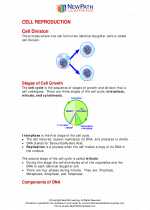 Cell Reproduction
Cell Reproduction  Activity Lesson
Activity Lesson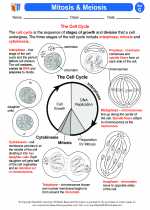 Mitosis & Meiosis
Mitosis & Meiosis  Worksheet/Answer key
Worksheet/Answer key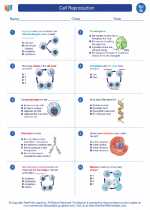 Cell Reproduction
Cell Reproduction  Worksheet/Answer key
Worksheet/Answer key Cell Reproduction
Cell Reproduction  Worksheet/Answer key
Worksheet/Answer key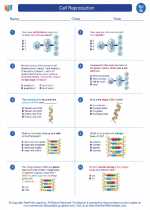 Cell Reproduction
Cell Reproduction  Vocabulary/Answer key
Vocabulary/Answer key Cell Reproduction
Cell Reproduction  Vocabulary/Answer key
Vocabulary/Answer key Cell Reproduction
Cell Reproduction  Vocabulary/Answer key
Vocabulary/Answer key Cell Reproduction
Cell Reproduction  Vocabulary/Answer key
Vocabulary/Answer key Cell Reproduction
Cell Reproduction  Vocabulary/Answer key
Vocabulary/Answer key Cell Reproduction
Cell Reproduction  Vocabulary/Answer key
Vocabulary/Answer key Cell Reproduction
Cell Reproduction  Vocabulary/Answer key
Vocabulary/Answer key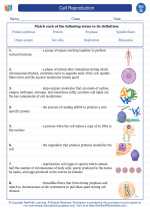 Cell Reproduction
Cell Reproduction  Vocabulary/Answer key
Vocabulary/Answer key Cell Reproduction
Cell Reproduction 

 Activity Lesson
Activity Lesson
 Worksheet/Answer key
Worksheet/Answer key
 Worksheet/Answer key
Worksheet/Answer key
 Worksheet/Answer key
Worksheet/Answer key
 Vocabulary/Answer key
Vocabulary/Answer key
 Vocabulary/Answer key
Vocabulary/Answer key
 Vocabulary/Answer key
Vocabulary/Answer key
 Vocabulary/Answer key
Vocabulary/Answer key
 Vocabulary/Answer key
Vocabulary/Answer key
 Vocabulary/Answer key
Vocabulary/Answer key
 Vocabulary/Answer key
Vocabulary/Answer key
 Vocabulary/Answer key
Vocabulary/Answer key

The resources above cover the following skills:
LIFE SCIENCE
From Molecules to Organisms: Structures and Processes
Gather and synthesize information to explain how prokaryotic and eukaryotic cells differ in structure and function, including the methods of asexual and sexual reproduction.